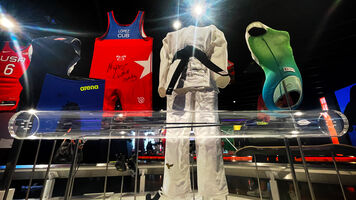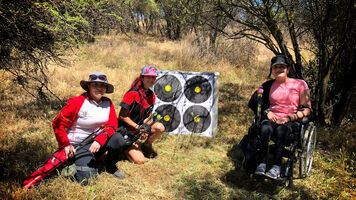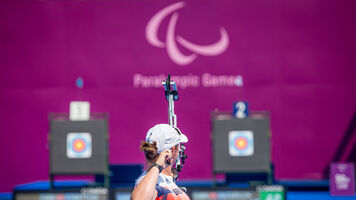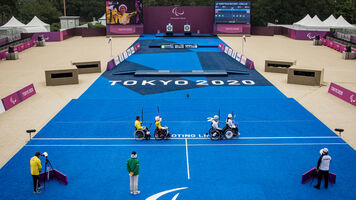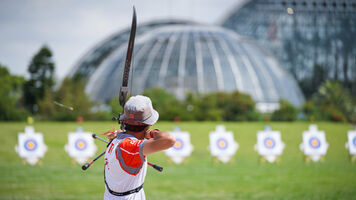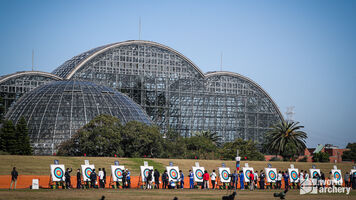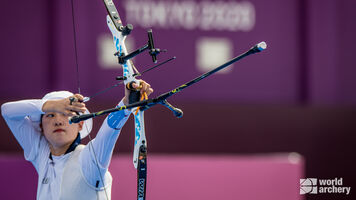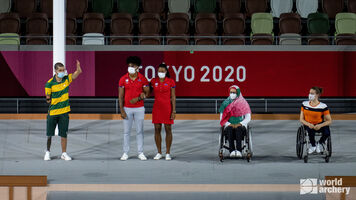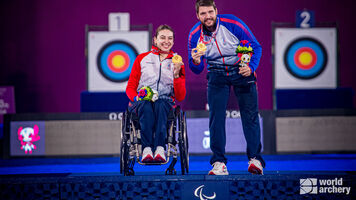Jeff Henckels pacing himself with Olympic appearances

Qualifying for the Olympics is a staggering achievement, pressure-packed and filled with anxiety.
“They’re too stressful to do every four years,” Jeff Henckels joked from his home in Luxembourg recently. “That’s why I take a break between each one.”
The veteran recurver attended his first Olympics in Athens in 2004, at the age of 19. While remarkable to some, to Henckels it felt easy.
“I always told people I was going to go to the Olympics,” Henckels said. “And then I actually made it to Greece. I was like, ‘see? It’s not that a big deal’.”
But then he missed the cut for Beijing and ended up watching the Games in 2008 from afar. Henckels was humbled. He realised just how difficult making the Olympics can be.
The disappointment helped fuel his training. Determined to prove that Athens wasn’t an anomaly, he no longer took his inaugural appearance for granted.
Eight years after making his Olympic debut, Henckels returned to the world’s biggest sporting stage in London, with a far greater appreciation for what it takes to be one of the 128 archers who attend each Games.
“Just missing one makes you appreciate the other ones,” he said. “I think it makes it more special. You realise that it’s not so easy, that not just anyone can do it.”
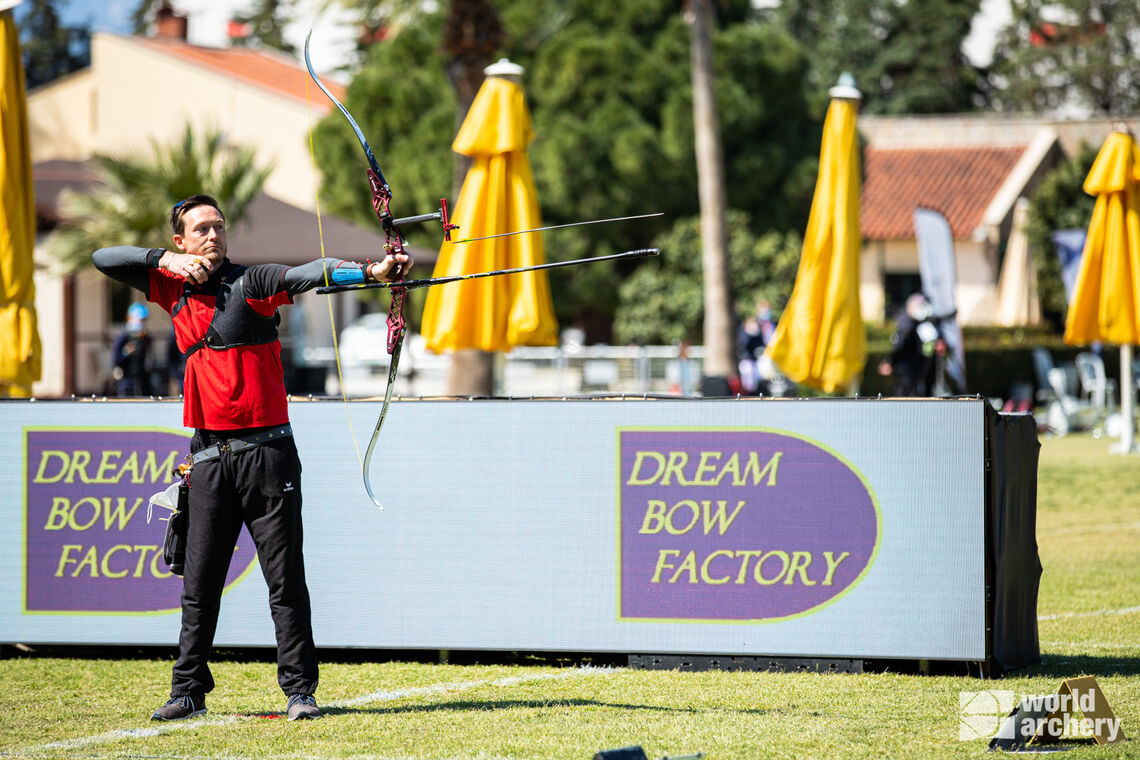
Nine years – and the Rio 2016 Olympics – have passed since London, where Henckel was eliminated in the first round in a repeat of his result in Athens. He is 36 years old now. A lot has changed in the 17 years since his first Games.
Adding an extra year to his eight-year intervals, however, may have been a blessing. In March 2020, shortly after the Tokyo 2020 Olympic Games were postponed due to the COVID-19 pandemic, Henckels experienced a cycling accident that tore a ligament and damaged cartilage in his elbow.
The injuries sidelined him for seven months as he recovered from an intense round of surgery.
He could only shoot a beginner’s bow at first as he slowly attempted to rehabilitate in time to compete in the final qualifying events for Tokyo.
“After so many years, it can be hard to find the motivation to train,” Henckels said. “But after so many months, I was really excited to shoot my bow again. My head was free, my mind was free. I was enjoying it more than years before.”
Reinvigorate following his accident, with a clear mind emptied of expectations, Henckels demonstrated that he was still a formidable competitor, shooting some of the best arrows of his career early in 2021.
He took bronze at the Grand Prix in Antalya – and then came within one point of winning an Olympic quota place at the same venue a few weeks later during the European Championships.
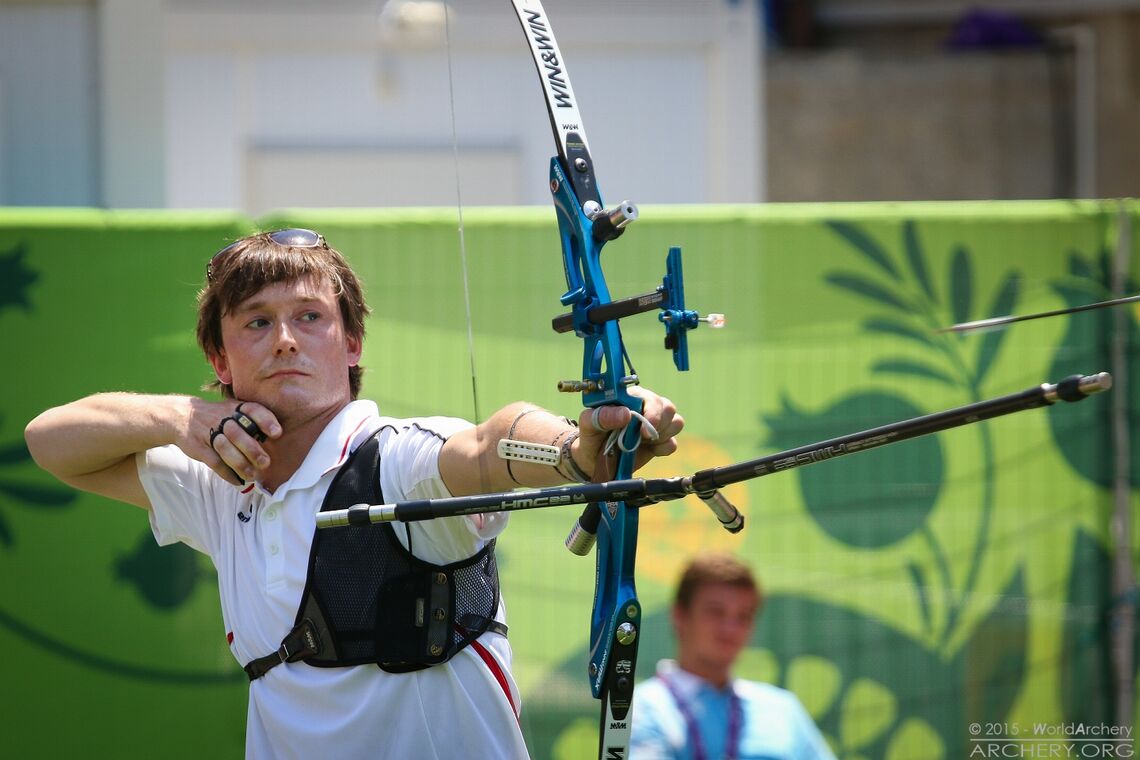
A career-best qualifying score of 682 at the final qualifying tournament for the Olympics broke a 20-year national record and earned him the top seed at the event. His routine of qualifying for every other Games appeared likely to be extended, but then he fell short in matchplay.
Still, Henckels knew he had an outside chance of being invited as a handful of quota places were likely to be reassigned if countries returned their allocated spots back to the pool of 128.
Indeed, four quota places for Tokyo were reissued to Belgium, Estonia, Luxembourg and Malaysia in the final phase of deciding the line-up in Japan.
As the highest-ranked archer representing a country without a quota place (33), Henckels was one of the recipients.
“In the end, no one is asking how you got there – or at least I hope,” Henckels laughed. “There isn’t a feeling that I don’t deserve it. I feel bad for the guys who cannot go, but you have to be in the position in the world ranking to get it.”
Henckels said he is carrying his expectation-free mentality with him to Tokyo. If his trend of missing every other Games continues, meaning he’d skip Paris 2024, he wouldn’t be back until he‘s 43 years old – an age in which he doesn’t anticipate he will still be shooting competitively.
After everything he’s been through, there isn’t any need to add more stress to his plate.
“I don’t feel the pressure. I feel excitement,” he said. “I’m going to Tokyo. I already have something to celebrate.”



